
I present my children on Instagram like they live in a fairytale – could it damage them?
Freshly cut roses. Sumptuous Marie Antoinette-style birthday cakes. Vintage Liberty dresses in Strawberry Thief fabric. Shetland ponies. These are some of the ingredients of my Instagram posts featuring my kids. I wouldn’t call myself a “sharent” by any means – someone who overshares their children’s intimate lives on social media in one long, parental “humblebrag”. But whenever I do post, it is picture-perfect. My kids look like they’ve walked straight out of a fairytale. But is it naff? Like tablescaping your kids? A form of digital narcissism? Is it, in its own unique way, a parental kind of “thirst trap”? To an extent, I’m luring others into a fantasy that doesn’t exist. I like to project a wonderfully idyllic life as a single mum... when quite frankly, it isn’t. It’s like when people try to woo their ex-partners back by posting shots of themselves half-naked and having the best time of their lives, despite crying into their pillow heartbroken all day and night. Some mums are professionals at posting perfect dreamy shots of their kids. Look no further than Carrie Johnson, Tamara Ecclestone, Stacey Solomon, and Kate and Rio Ferdinand. For celebrities and influencers, a picture-perfect ideal is the norm on social media – there are lots of cream interiors and matching Christmas jumpers. They might be promoting a homeware brand, or tagging a pram they got for free. Even when it’s tastefully done, like the former PM’s wife’s Instagram, it always gives the impression that motherhood is wondrous. That life is one big, happy Timotei advert. Even when celebrities try to be more candid, it doesn’t work. Mum-of-two Millie Mackintosh, formerly of Made in Chelsea, recently posted a “toddler tornado dump” on her Instagram. “I feel like it’s so easy to always share the nice, polished, life,” she wrote. “Well, today, I’m here to break that pattern.” The glimpse “into the delightful chaos” of Mackintosh’s maternal life included photos of a toothbrush and toothpaste on a bathroom basin, a bedroom littered with hair bows, and a make-up drawer with a few brown concealer stains on it. Really? Is that as bad as motherhood gets? For me, it’s simply more interesting to post magical rather than mundane shots. But why on earth do I want to present my kids as if they’re living in one long, tasteful pastel-coloured dream, where everything looks enchanting? No messy hair. No sleep deprivation. No kids bored out of their minds. I don’t require a filter, either – I’m already looking at life through rose-tinted spectacles, and expecting everyone else to do the same. But am I totally deluded? And, more than anything, could it be damaging to my children? Dr Charlotte Armitage, who is currently the duty-of-care psychologist on ITV’s Big Brother, has big concerns. “First of all, it’s impacting the relationship between the parent and a child because the relationship is contingent on the creation of these images and the number of likes that follow,” she says, adding that when you are “truly happy” with your situation, “you don’t tend to post perfect images”. It’s more important to ask ourselves the question of why we feel the need to present this kind of picture-perfect image of ourselves to the world. Is it because, in reality, we are discontented with our lives? Dr Charlotte Armitage, psychologist As parents, she continues, we are modelling behaviours to our children. “They learn by imitation – if mum is taking photos and seeking validation from likes, the child starts to become validated by these likes themselves and will develop an external focus of control; they will learn that validation comes from what others think of them. This is unhealthy because, throughout life, a child’s self-esteem and self-worth become based on what others think about them rather than how they feel about themselves.” The key, she says, is realising we shouldn’t use social media to fulfil our self-worth. “It’s more important to ask ourselves the question of why we feel the need to present this kind of picture-perfect image of ourselves to the world,” she says. “Is it because, in reality, we are discontented with our lives?” According to research, the average child today has had their image put on social media 1,300 times before the age of 13 – I can see this trajectory for my kids unless I put on the brakes. There are already widespread concerns over the data. In France, an anti-sharing bill continues to be discussed in the country’s senate, and parents could potentially be banned from sharing photos of their children on social media. It could also become mandatory for influencers to admit if a photo or video they posted was retouched or filtered. There is controversy over whether pictures of kids should even be posted online at all, as many are too young to even give permission. How will they feel about the spread of their image in the future? What happens if their identity is stolen – or worse, used by paedophiles? Does it promote a distorted reality of motherhood, compared with which other “normal” mums feel inadequate? And can it backfire on the parents when children’s rights in the digital era are not honoured? “Children tend to be frustrated or critical of the way their parents share images of them,” says Professor Sonia Livingstone, from the department of media and communications at the London School of Economics and Political Science. “Not because they are made to seem ‘perfect’ but because they can be embarrassed, even shamed, in the eyes of their peers. Meanwhile, parents feel hugely under pressure in many ways, both to be perfect parents and also because such images leave parents competing with each other and isolated in their own seemingly inadequate lives.” Dr Cosmo Duff Gordon is the founder of leading addictions clinic Start2Stop, and a psychologist in private practice at Chelsea Recovery Associates. He says that in his 20-year career as a psychologist, he’s “never had a parent sit in front of him and say ‘I’m addicted to Instagram,’” but that’s not because social media addiction doesn’t exist. He puts it largely down to “denial” – “not least since the use of social media can involve so many of the processes that usually characterise classic alcohol or drug addiction”. Denial being the number one culprit. “Obvious ones might be obsession, compulsion, capture of attentional focus and loss of control,” he says. “More subtly, social media use can involve the same sort of self-medication, or escape from reality, that addiction offers – and being a parent is hard. That’s why drifting into a fantasy land can be a relief from the daily grind of motherhood.” Parenting expert Hannah Keeley – aka “America’s #1 Mom Coach” – is more upbeat about mums posting potentially inauthentic photos of their kids. “The hardest truth to accept is that there are some mums who are actually professionalising motherhood to this level,” she says. “Not that they have achieved perfection, but they take pride in their performance as mums and use social media as a way to confirm that to themselves and boost their confidence to encourage their efforts. Should these mums also be obligated to ensure that all mums feel good about themselves, whether or not they have invested in their career to this level? Mums don’t have to be responsible for other mums’ perceptions.” After great debate and reflection, I’ve decided I’m happy with my Insta posts. They might be driven by my background, where my sister and I ran around in white nightdresses as if we had starring roles in Picnic at Hanging Rock. Or because I was conditioned to believe that how we look – even how thin we were – equalled self-worth. I’m not setting myself up to be a supermum. I don’t look at how many likes I get. It’s true that us mums also need to share our parenting experiences honestly, to let other mums know they are not alone. But for now, I’m not doing a U-turn – I’m just living the fairytale dream. Read More My daughter’s horsey hobby makes her happy, but our home now hums If poachers make the best gamekeepers, do siblings make the best babysitters? Mother’s song about how easy it is to be ‘such a good dad’ goes viral Will an adaptogen a day keep the doctor away this winter? Naomi Watts admits mid-thirties menopause felt like ‘the end of my worth’ Smoking causes 150 cancer cases every single day in UK, study finds
2023-11-20 14:47

10 Fascinating Facts About ‘Ex Machina‘
Alex Garland‘s directorial debut contains what might be the most dense, obscure in-joke in cinema history.
2023-11-19 21:28

Watching Blobs of Paint Move to Chopin Is Oddly Soothing
This digital art piece from Thomas Blanchard set to Chopin’s Nocturne Op. ,9 No. 2 is oddly soothing.
2023-11-19 01:29

What’s the Kennection? #89
All five answers to the questions below have something in common. Can you figure it out?
2023-11-18 21:17
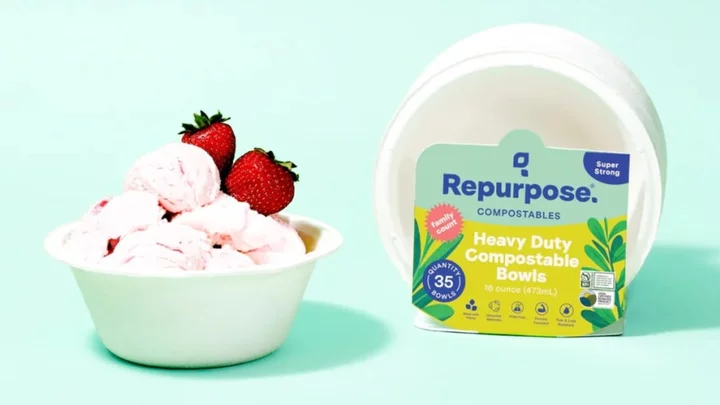
Make Your Holiday Gatherings Greener With This Compostable Dinnerware
Plates, bowls, and even cutlery can go in the compost pile instead of the trash.
2023-11-18 04:23
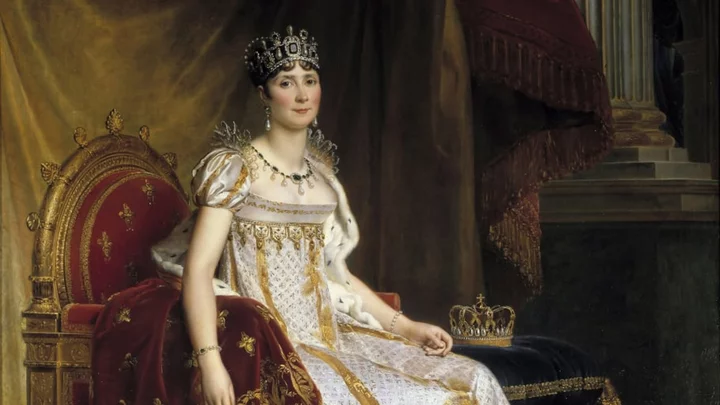
11 Facts About Joséphine de Beauharnais
Ahead of the release of Ridley Scott’s biopic, ‘Napoleon,’ here are 11 facts about the woman who once stood in the emperor’s shadow.
2023-11-17 07:25

T-Glottalization: The Reason Some People Drop Their ‘T’s When Speaking
Dropping that ‘t’ sound is an example of what linguists call glottalization, or replacing a sound with a pause in the vocal cords.
2023-11-17 06:25
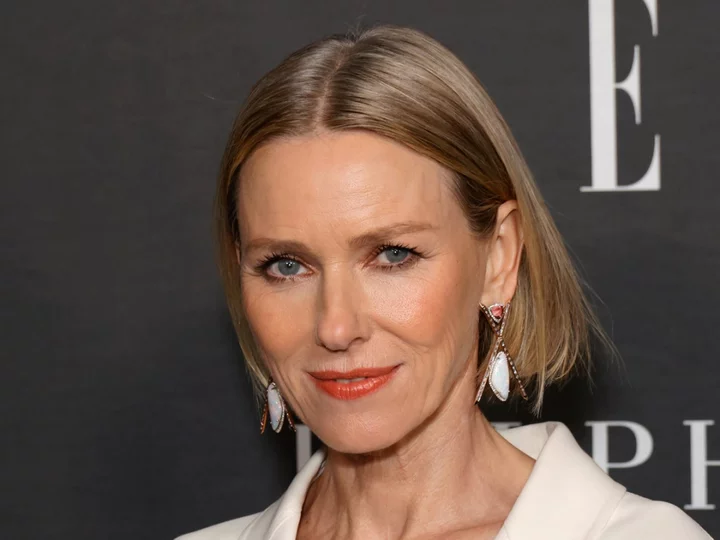
Naomi Watts admits mid-thirties menopause felt like ‘the end of my worth’
Naomi Watts has admitted that going through menopause in her mid-thirties felt like “the end of her worth”. Watts, now 55, said she thought of menopause as “equating to the end” of her career, when she experienced it three years after her breakthrough performance in David Lynch’s 2001 psychological thriller Mulholland Drive. In an interview with Times Radio on Thursday, the two-time Oscar-nominated actor added that the lack of conversation around menopause – or the end of menstruation – “told me that you don’t matter anymore”. She continued: “So I kind of spent a lot of time spinning out and turning in on myself, feeling panicked about the end of my career, the end of my worth. If I can’t bring children into the world, my partner will probably leave me. What do I mean? Where’s my purpose?” Watts has been advocating for greater awareness and sensitivity around the subject, with the actor launching her own menopausal beauty brand Stripes last October. In the interview, she noted that, while women come together to discuss their periods, first kisses, or experiences with getting pregnant, the conversation around menopause has remained shrouded in secrecy and shame. However, Watts acknowledged that she wouldn’t have spoken about her own experiences when she was younger. Opening up about her decision to talk about going through early menopause publicly, she said: “Maybe it was just the right timing, maybe that the average age of menopause is 51. Maybe I just had to get past that milestone to actually admit that that was me. However, Watts added, her outlook has since changed because she “got on top of the education” and has a better understanding of it. “I’ve also got my friends,” she continued, underscoring the importance of having a community. “We can moan about it if we have to, laugh about it and share our experiences openly. “I think when the conversation is off the table, that’s the worst part of it,” Watts said. The Impossible actor has previously said that going through early menopause was “incredibly isolating”, with the NHS estimating that premature menopause – before the age of 40 – affects one per cent of women in the UK. The symptoms are the same as perimenopause, or the years of transition leading up to menopause. These usually include changes in the pattern and/or frequency of menstrual cycles, anxiety, mood changes, hot flushes, and hair loss or thinning. Read More ‘It was the most isolating experience’: Meet the women with early menopause Smoking causes 150 cancer cases every single day in UK, study finds Millions of women able to get contraceptive pills over the counter next year Smoking causes 150 cancer cases every single day in UK, study finds Millions of women able to get contraceptive pills over the counter next year Woman with cystic fibrosis had weeks to live – now she’s climbing mountains
2023-11-17 05:29

Walgreens to close nearly all pharmacies on Thanksgiving for first time
(Reuters) -Walgreens Boots Alliance will close nearly all of its stores and pharmacies on Thanksgiving Day for the first time
2023-11-17 04:53

All 25 Recipients of the Mark Twain Prize for American Humor
The honor for comedic excellence has been turned down a couple of times and rescinded once.
2023-11-17 03:25
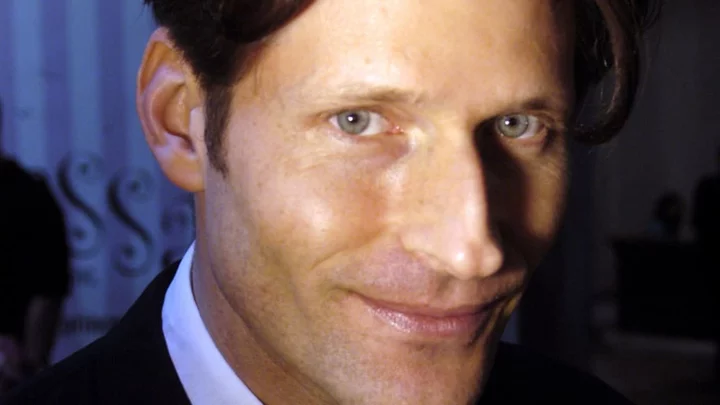
When Crispin Glover Was Replaced by a Lookalike in ‘Back to the Future II’
Audiences thought the actor reprised his role as George McFly in the ‘Back to the Future’ sequels. But Glover had never stepped foot on set.
2023-11-17 02:28
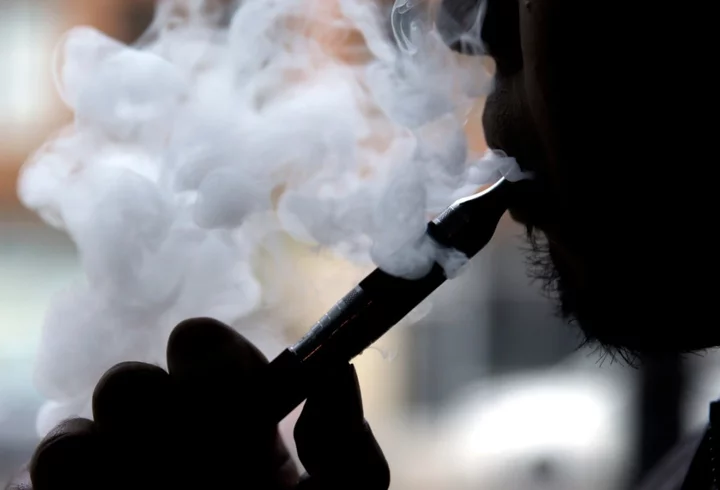
Smoking causes 150 cancer cases every single day in UK, study finds
Smoking causes 150 cancer cases every day in the UK alone, according to a new study. While tobacco smoking in the UK and US peaked to about 50 per cent in the 1950s, this had dropped to around 13 per cent in 2020-21 due to control efforts, said the study. However, historically high smoking rates are still a driving factor of the cancer burden in the countries today, it said. Very high-income countries like the UK are projected to see a 50 per cent increase in cancer cases over the next 50 years, said Cancer Research UK, that funded the study, on Wednesday. Researchers called on MPs to support raising the age of sale of tobacco products as a critical step to create the first ever smoke-free generation. “Action on tobacco would have the biggest impact – smoking causes 150 cases of cancer in the UK every single day,” said Ian Walker, executive director of policy and information at Cancer Research UK. “There are cost-effective tools at hand to prevent cases of cancer, which will save lives around the world. “Tobacco control measures are chronically underfunded. And as a recognised leader in global health, the UK government can play a significant role in addressing this,” Mr Walker said. The study also revealed at least 1.3 million people in seven countries die due to cancer caused by smoking tobacco. The deaths across the UK, US, Brazil, Russia, India, China and South Africa represent over half the world’s annual cancer death burden. The study analysed the years of life that were wasted to cancer. It also assessed whether certain risk factors caused deaths more prematurely. Researchers found four preventable risk factors resulted in almost two million deaths combined and over 30 million years of life lost each year. These factors are smoking, alcohol consumption, obesity and human papillomavirus (HPV) infections. At least 20.8 million years of life are lost from smoking tobacco alone, found the study. It also warned new cancer cases could surge by five times, from 0.6 million to 3.1 million per year in low-income countries over the next 50 years. “These numbers are staggering, and show that with action on a global scale, millions of lives could be saved from preventable cancers,” Mr Walker said. Researchers also found gender differences in the number of cancer deaths. Men were observed to have higher rates of years of life lost to smoking and drinking alcohol as these rates tend to be higher in men. In China, India and Russia, the rates of years of life lost to tobacco smoking and alcohol were up to nine times higher in men than women, found the study. The research was published in the journal eClinicalMedicine and involved the work of researchers from King’s College London and Queen Mary University of London. Read More Binman shoots first Hollywood film after chat with Mark Wahlberg changed his life UK’s tallest living Christmas tree lit up with 1,800 bulbs Morrisons Christmas ad features iconic 80s track and shares support for festive hosts The best foods to forage in November and how to cook them Millions of women able to get contraceptive pills over the counter next year Woman with cystic fibrosis had weeks to live – now she’s climbing mountains
2023-11-16 18:47
You Might Like...

Caron Treatment Centers Names John Driscoll as its New President and CEO

'GMA's Ginger Zee temporarily replaced by Sam Champion as meteorologist skips weather report segment

Is Dr Terry Dubrow OK? 'Botched' doctor rushed to hospital after he experienced 'stroke-like symptoms' during dinner

Lauren Boebert reveals she’s officially a grandmother as she avoids question about Marjorie Taylor Greene spat

Father issues warning about mermaid tail swimsuits after five-year-old daughter almost drowns

BBC Breakfast’s Emma Vardy announces birth of son: ‘Presenting my best breaking news ever’

Moderna seeks US FDA authorization for updated COVID vaccine

8-year-old girl sought medical help 3 times on day she died, US immigration officials say
